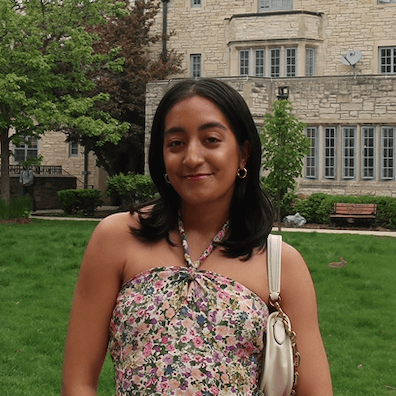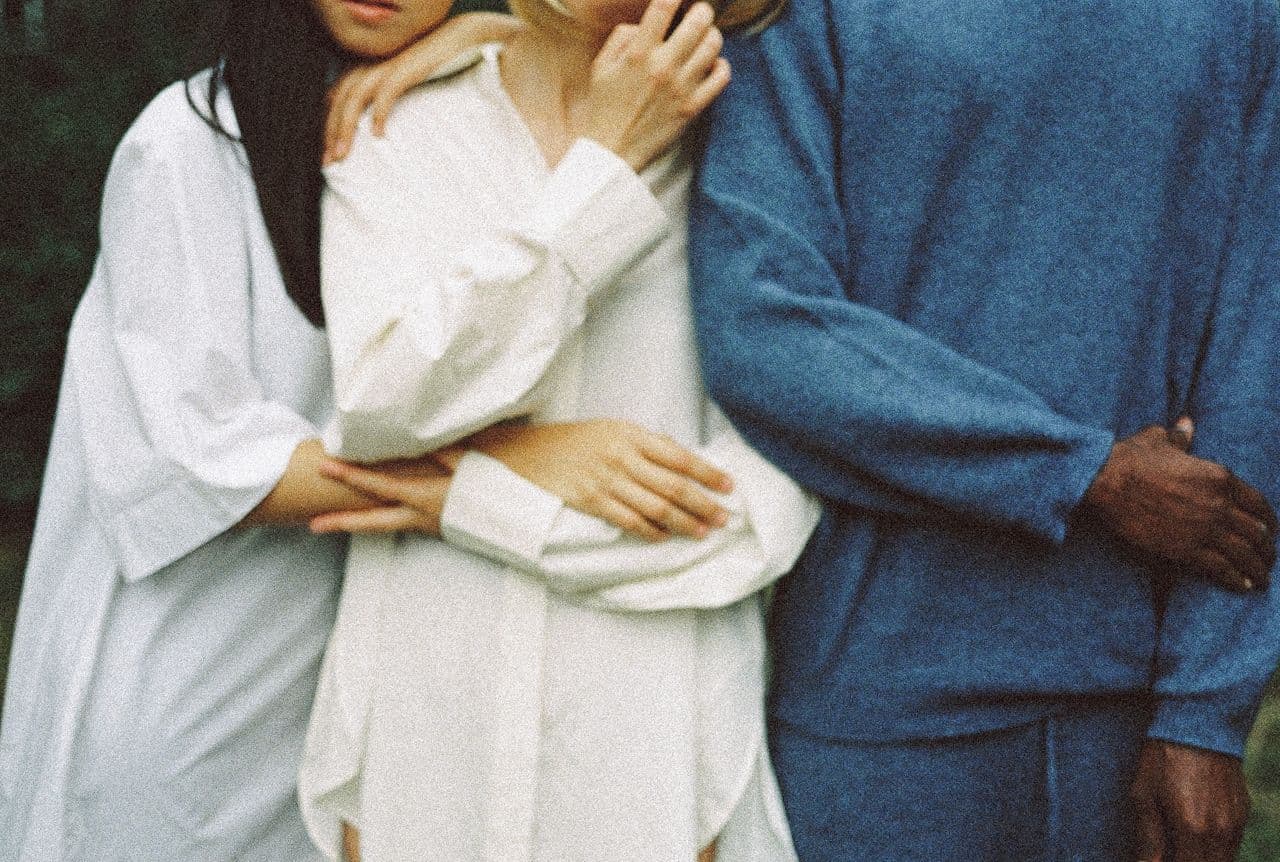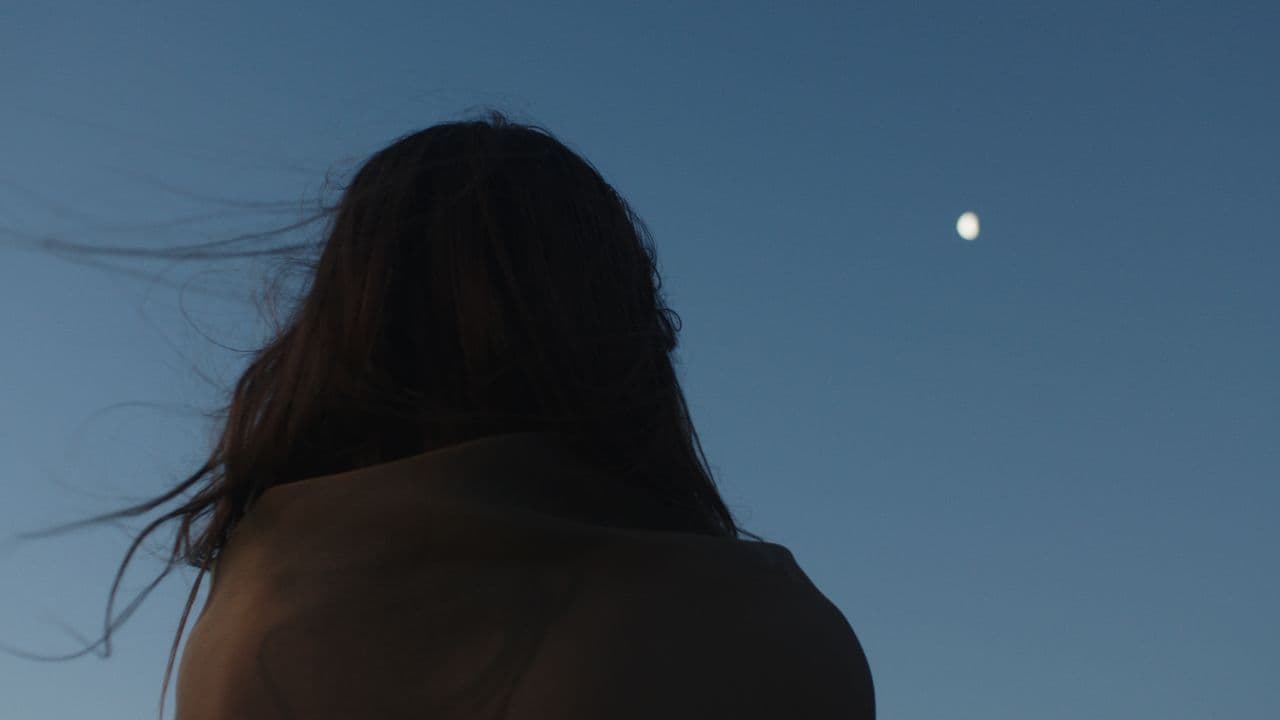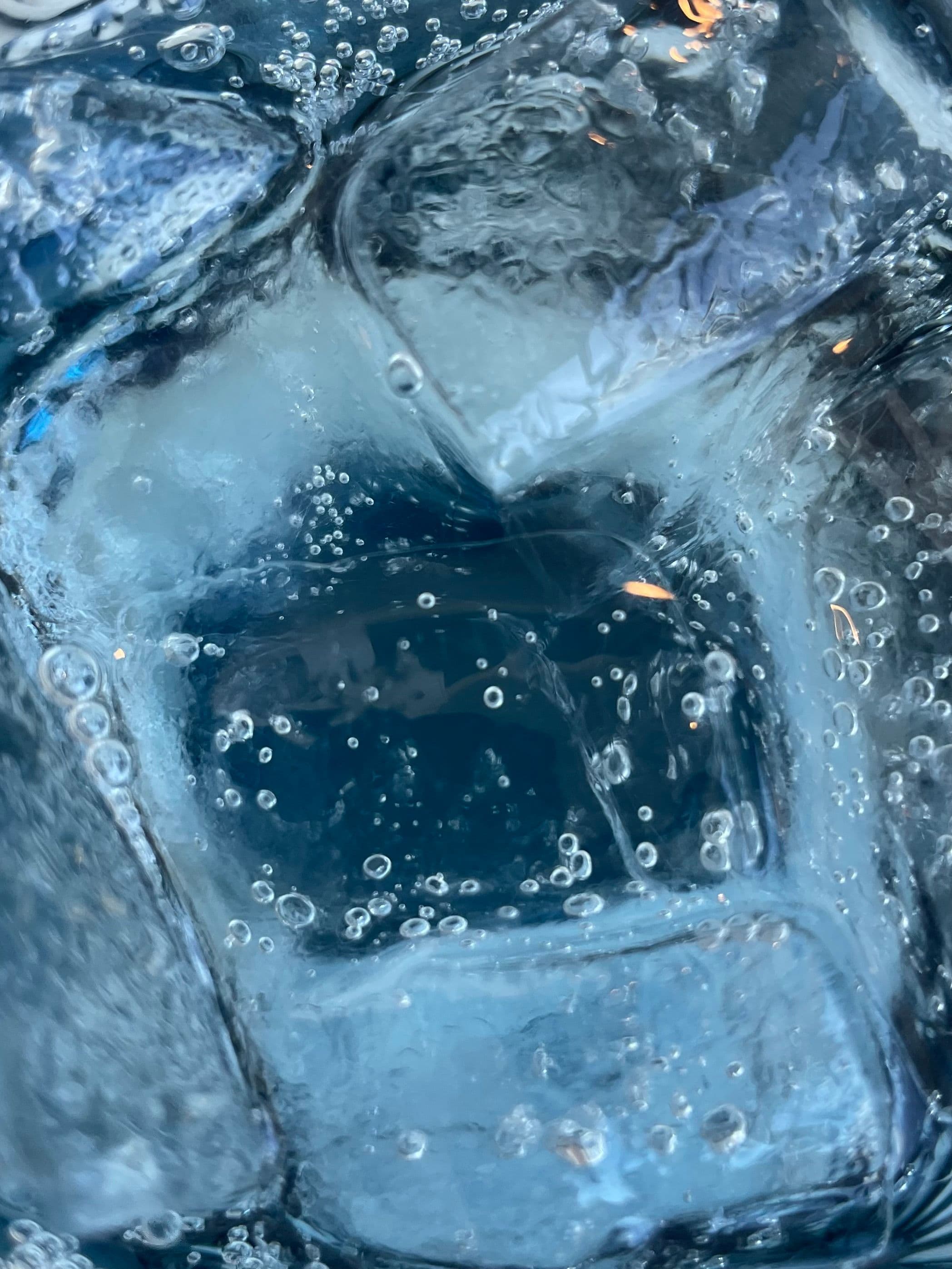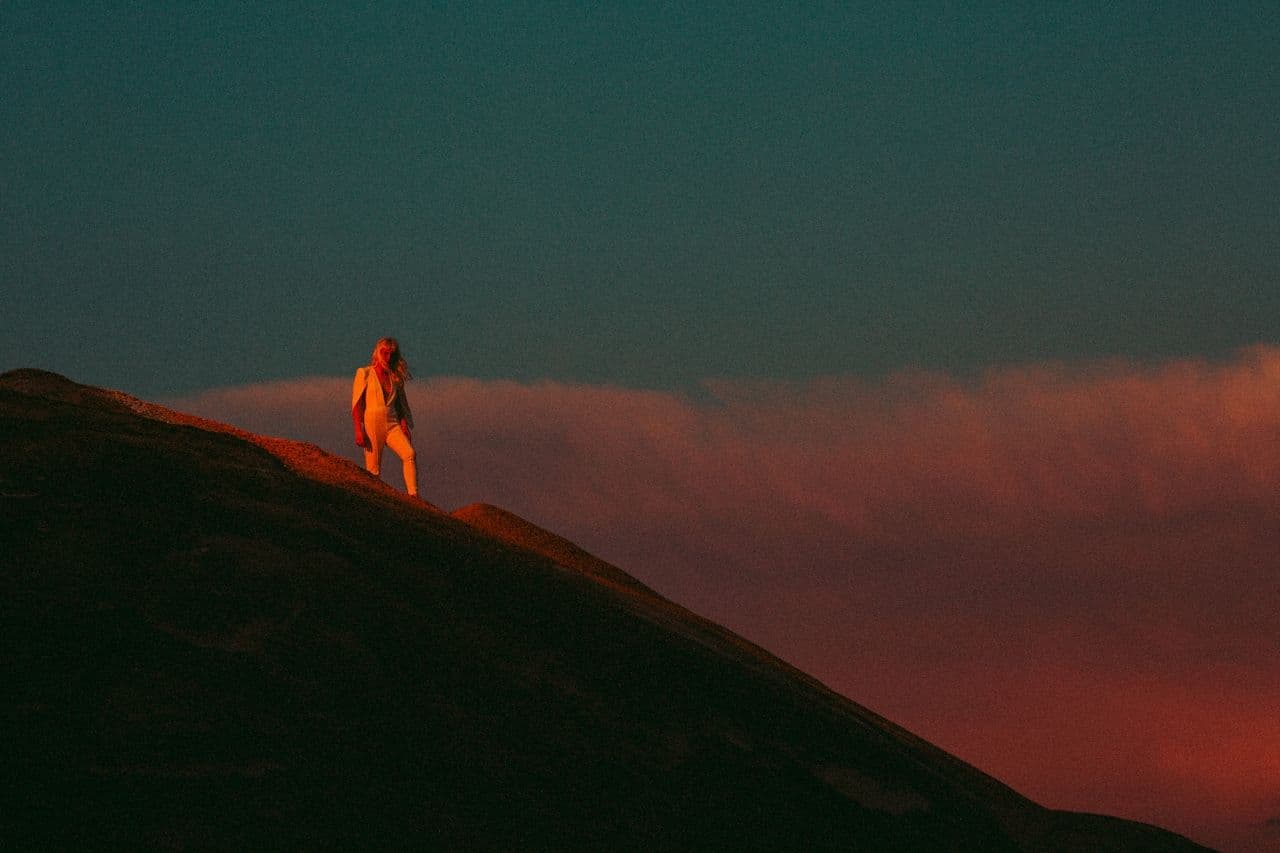A week into her senior year of high school, at 17, Alayna Jayne Riozzi-Bodine found a lump in her neck. She was diagnosed with Hodgkin lymphoma by the end of the September and pursuing fertility preservation while her friends were picking out their dresses for formal. Two years later, when she’d started nursing school, there was a recurrence.
Alayna transformed her experiences into action by founding the Alayna Jayne Foundation, which aims to provide support to young patients during their own diagnosis. Alayna, now 21, is now in her senior year at Monmouth University in New Jersey, and still studying nursing.
Jadey spoke to Alayna about friendships and school during treatment, changing body image, making a hospital feel like home, and advocating for more respectful and appropriate treatment for young adults with cancer.
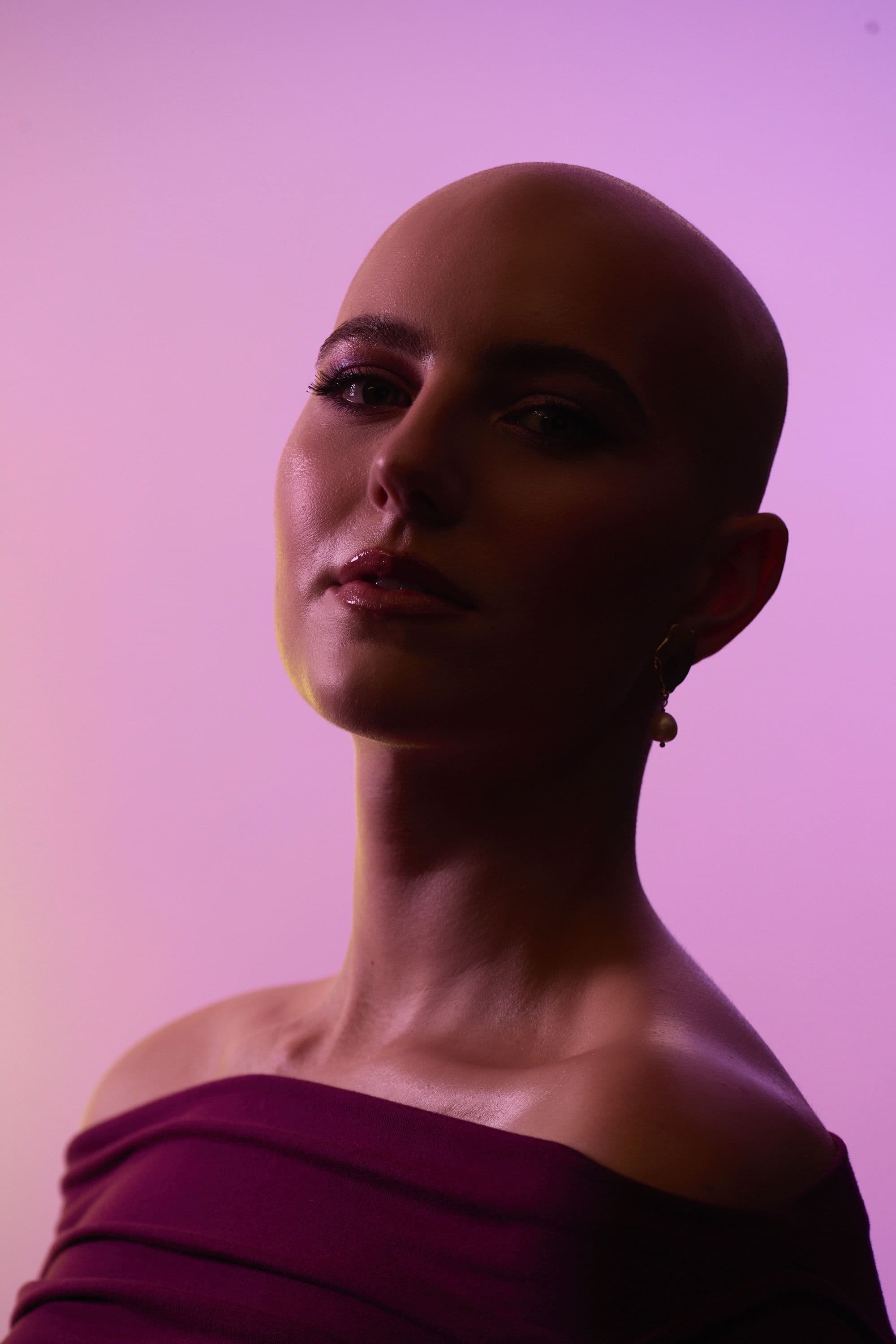
Photo by David Rosenzweig for Tarte Cosmetics.
Q:
Could you start by telling us a little bit about yourself and your cancer journey?
A:
It was literally the first week of school. I noticed a lump in my neck, and my world kind of just started to spiral from there. I got diagnosed at the end of September, and my senior year was just consumed by cancer. I was thrown right into the medical world. I had so many questions. The unknown is the scariest part of this disease because you don't know what to do, you don't know how to handle this, and there's not many resources I found to help my age group.
When I was first diagnosed, the first two questions that popped in my head were: Am I going to live? But also: Am I going to lose my hair? I found out about cold caps, a device that helps save your hair during chemotherapy. But AYA patients [often can’t use it]. Technically you can still be pediatric up until 23. I think it's something that should be talked about more for AYAs, and that also goes along with fertility treatment as well.
[Editor’s note: AYA is a term the National Cancer Institute uses to describe anyone diagnosed with cancer between the ages of 15 and 39.]
Q:
What was it like still being treated as a pediatric patient even though you were on the cusp of adulthood?
A:
I would be having treatment and Santa Claus would come visit me. I was 18 at that point. Why is Santa Claus coming to visit me? I don't know.
They're not worried about all the side effects down the line. They're looking at this child, like ‘let's get this child better.’ And they're throwing everything at you. They're not worried about the future of this child, almost. There's a whole future for me and now I have so many side effects that I'm dealing with.
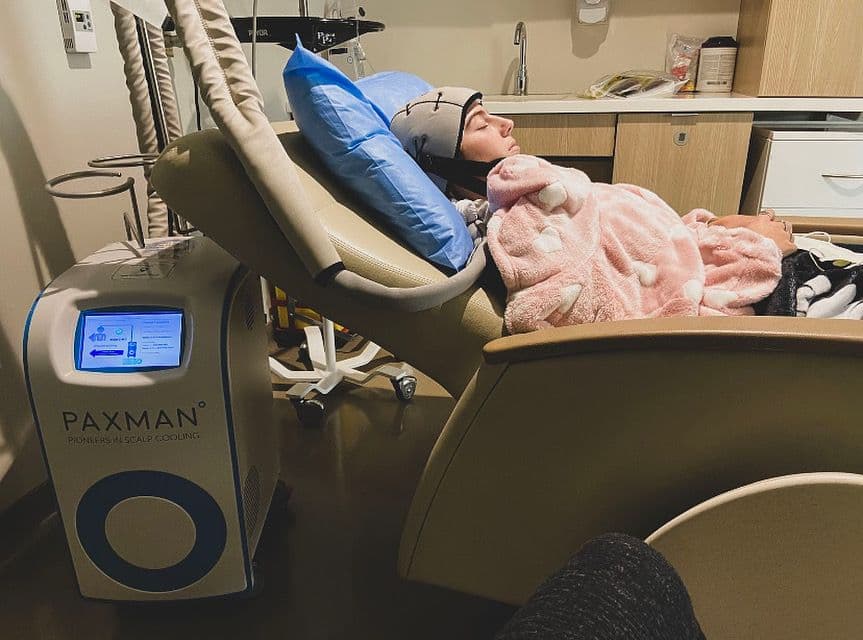
"My first diagnosis, at 17, using the cold cap," says Alayna. "I was the first pediatric patient at memorial Sloan Kettering to use the cold cap."
Q:
You mentioned fertility treatment and egg freezing. What was it like to freeze your eggs and go through fertility treatment especially at such a young age?
A:
Fertility is a big thing that is not talked about for pediatric patients. After my second time battling, I'm in menopause now. I'm 21. And if I didn't freeze my eggs, I would have never been able to have a family of my own. I froze my eggs twice. This is something that my mom really advocated for me and talked about when I was 17. We brought it up to my doctors and we were like, ‘Is this something I need to be concerned about?’ And they said, ‘Well, we don't really know.’ They're pediatricians. They're looking to give you life, they're not worried about your life after cancer.
It was formal for my high school. I was sitting in my room, and I looked at my mom. I just was kind of in disbelief. I was sitting there, at 17, thinking about my future children, my future family–and my friends were worrying about what dress they wanted to wear to the formal that night. That kind of really puts into perspective the gap and the isolation that you face during this time and how important it is to have people to connect with that are going through similar things as you.
The fertility journey for me was taxing. It was two weeks of basically every day I would go into the office. I would have to wake up at 6 a.m. and head to the clinic every single day. The clinic was an hour away because since I was 17, not many clinics wanted to take me, and honestly, they were a blessing. I wouldn't change it for the world. They made me feel so comfortable.
They at first were going to do transvaginal ultrasounds with the wand, but they talked to me and they were like, “To make you more comfortable, we'll just have you drink like a bunch of water before so your bladder is full and we'll just do it over your stomach.” It's little things like that that made me feel more comfortable and more in control because I wasn't a woman at that point. I would have felt more exposed and more uncomfortable in those situations and vulnerable if they handled that differently. During that first retrieval, my mom would do my shots every night because I was still very nervous. Even though she felt really bad for inflicting pain on me. She'd be freaking out more than me, but it was helpful having someone to take that over for me and do it for me.
Retrieval went smoothly. My doctor was really conscious of making me feel comfortable, not putting my legs up in the stirrups before going under. She just had me laying on the table and they did all of that when I was under. Usually they would already have you all set up and just like vulnerable and exposed, but they really were conscious of my age, which I was thankful for because it made it less scarring.
We waited a year to see if my ovaries would start functioning again. I was getting spotting and bleeding and I was crossing my fingers hoping that I was thinking that my period would come back. We went to go get my levels checked the other day and it doesn't look like it.
Q:
What does it feel like to be experiencing menopausal symptoms at this age?
A:
I get really intense hot flashes. I keep having them here and there and I get so sweaty, it's embarrassing. I'm 21 now, so I'll be out with my friends at the bar and get a hot flash and I'm like, ‘Sorry, guys, I'm in menopause, I’m having a hot flash. Let me step out,’ because I'm drenched in sweat. I also just feel like my hormones are all over the place. I don't feel regulated.
Body image has really been a thing that I've struggled with post-treatment just because I was so athletic before the past four years. I was a national level triathlete. I was in the best shape of my life, even though I was battling cancer and didn't know. It was going from running triathlons to not being able to walk a mile. Now being in menopause and my metabolism isn't the same – it's really taken a toll. I know I should be viewing it as something so strong and it's got me through all this, but it’s hard when you're seeing other girls your age, just little skinny sticks. It's just annoying because I'm working hard.
The next step I'm starting is a meeting with an oncology gynecologist, and she's going to potentially start me on hormone therapy, because I know another part of menopause is your bone density. Being 21 and having low bone density is not healthy.
Q:
After you faced cancer for the first time, you finished high school and went on to nursing school. Can you talk a bit about that and how you balanced school with your relapse?
A:
I was able to finish my senior year of high school on time. I kind of just jumped right back into life when I was done with treatment. I was back for graduation, prom, everything.
Then I applied to nursing schools. I knew that was something that I wanted to do. And going through all that, I fell in love with nursing even more. I just wanted to really give back to the medical community that helped me through everything that I was going through, that big journey in my life. I started nursing school in the fall of 2022.
When I got a relapse diagnosis, I was trying to decide whether or not to take a step back from nursing school. I took a little step back, but I was still in one class throughout my bone marrow transplant. Being in college during that time, it gave me a sense of the future. It gave me something to look forward to. Now, it wasn't a very intense class, but it kept me determined to keep my education and keep my future going. When I got out of the hospital and was done with my bone marrow transplant, I signed up for four summer classes to keep up with my nursing cohort.
I completed my fourth summer class while going through treatment. I was going through maintenance radiation and I was recovering from my bone marrow transplant. Many people may think that school might be overwhelming during that time, and I 100% understand that. If you need to take a step back, go for it. But I also thought it was really important to myself to not only have something keeping me accountable in my future, but to keep me in my nursing friend group that I met in college.
I was determined [to have] something other than cancer, things to focus on. I had assignments approaching, I had to study for exams and that kind of kept me on track to look forward to the future and not dwell on the stage of the life that I was in.
Q:
You also started the Alayna Jayne Foundation while in nursing school. Can you talk about the foundation and everything that you do?
A:
I started the Alayna Jayne Foundation, which has evolved so much. We help fund cold caps 100% and we fund wigs. We have two scholarships set up, one at my high school and then another one at my college that we give out to students who are directly affected by cancer, either themselves or a family member close to them.
Then we also hold retreats at Mary's Place by the Sea, which is another nonprofit foundation for adult women cancer patients who are going through treatment and two years post treatment. We brought not only the patients but also their caregivers: just as much as it affects the patient, it also affects the caregiver. They're going through it as well. Not only mentally, but I really saw a change in my Mom also physically, and my Dad, too.
It would just be so special because I would have an automatic bond with these girls, even though we're going through something that is so awful and it's such a tough age to go through this, because not only are you trying to learn who you are yourself and just learn your identity. Having people who you can relate to on something that's so isolating is just it. It really fills your heart in a way. Mary's Place is just a place that really feeds your soul and that was just really special.
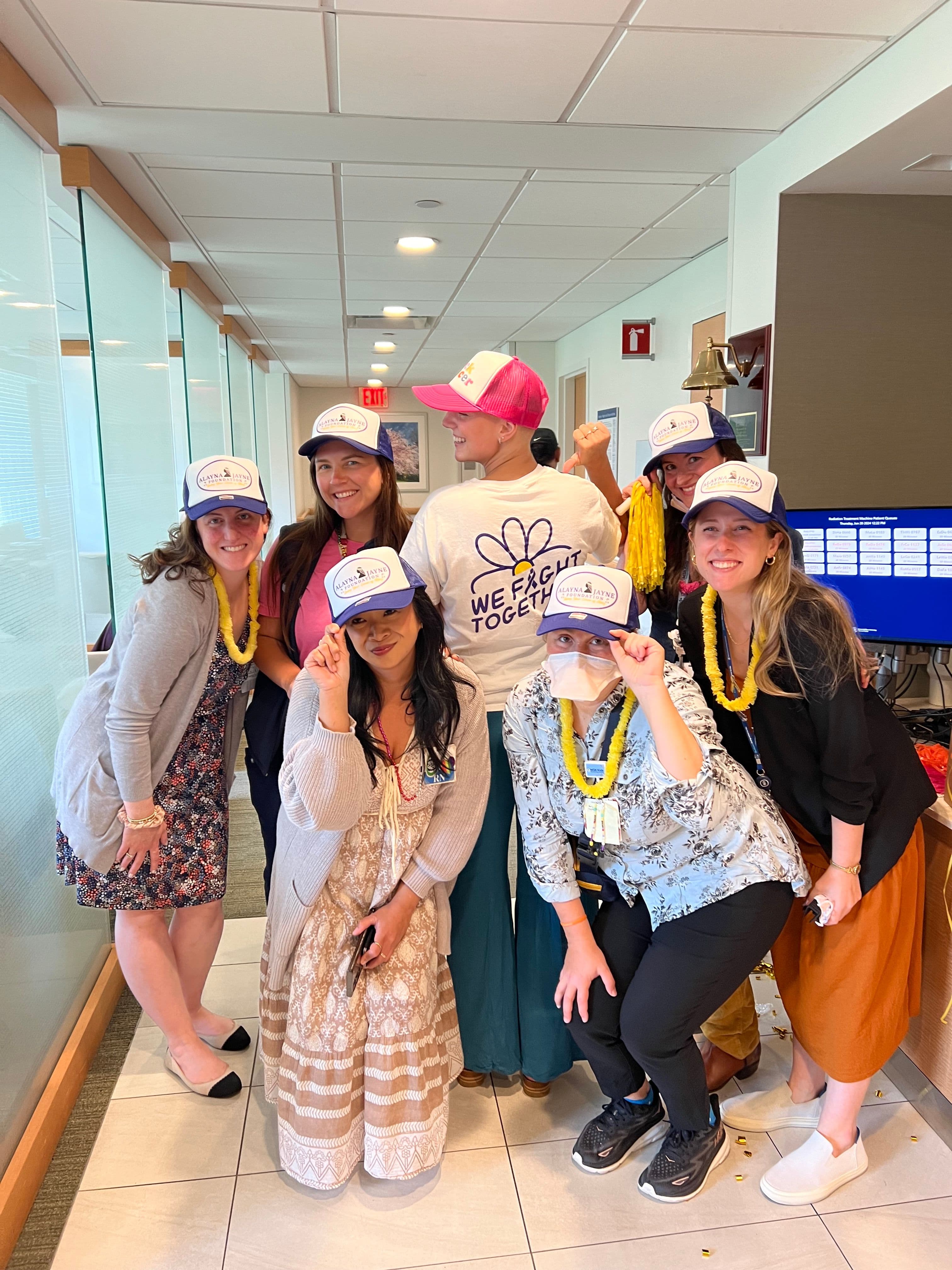
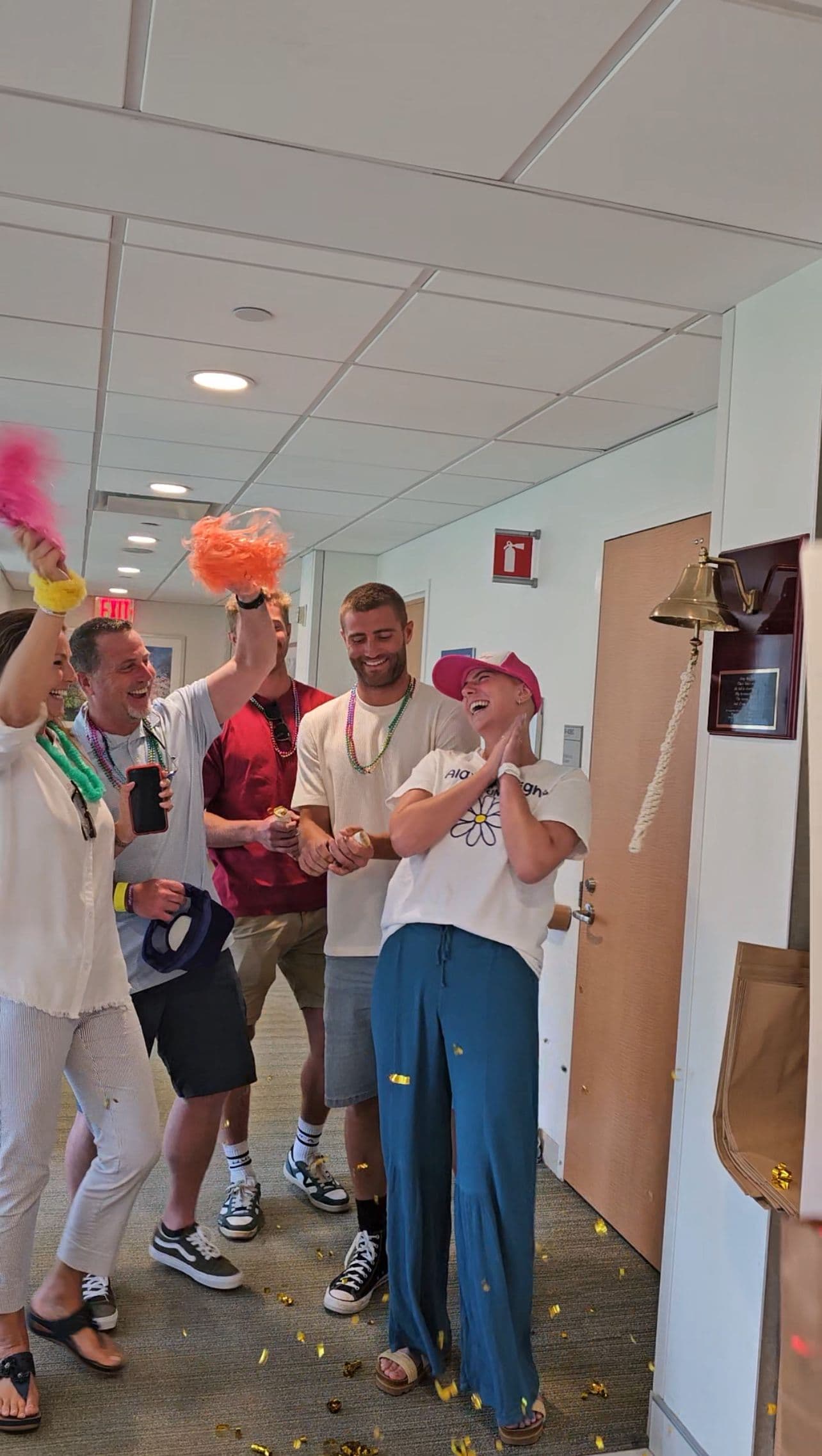
June 21, 2024, Alayna with her medical team at the end of treatment.
"Cancer free and ringing out at the end of treatment for the second time."
Q:
You’re also a big advocate of making a hospital room homey, especially for people staying there for more than a couple weeks.
A:
Unfortunately I became chemo resistant, my second time relapsing, and we started something called a bone marrow transplant. You're isolated in a hospital room from anywhere from six to eight weeks. I could not leave my hospital room.
While I was in there, my room was the one thing that I could control. I decorated my room from top to bottom. I had LED lights, I had posters, I had pictures of my friends, I had bedding. I just had everything that I wanted. I wanted it to feel like home. But I also had functional things like a Brita filter, I had Command hooks, I had extra storage in the bathroom. I had just little things that made living in that room just so much easier, but also so much more of a healing space.
It was really helping me mentally, just having a room of my own–but my doctors, my nurses would come in and they'd be like, ‘Wow, you want to hang out in here? This is such a nice room. No one ever does this.’ I'm thinking about all the other bone marrow transplant patients on this ward, and they're just in there for six, eight weeks in a blank hospital room. I would have gone crazy.
[The foundation also helps] other bone marrow transplant patients decorate their rooms. We give them a budget and they can purchase their Amazon wishlist of all the decorations that they want, and Amazon ships it directly to them. They can set up their room and decorate it however they want, personalize it, and it just makes it that much a little bit easier when you're in that situation.
Q:
Can you talk a bit about how you felt like your journey was different when you relapsed?
A:
When I was 17, I really felt like a child. I felt like it was my mom always speaking for me, and I felt comfortable with that. But when I got my relapse diagnosis at 19, I realized I had a voice and I wanted my opinions to be heard. I wanted to advocate for myself and not just let it be all my mom.
This time I really wanted to make sure my treatment regimens were right. During my first battle, I developed something called neuropathy in my feet from the drug regimen I was on. And when I relapsed, that was something that I was really nervous about: going on a chemo drug that would produce more neuropathy in my feet because that was a whole lifestyle change. I went from being a national level triathlete to not being able to even walk a mile without my feet flaring up and having intense pain.
We shifted to immunotherapy. There's always other options. You just have to have a voice. And if you as a patient yourself can't, then it falls onto your caregiver and you need to have someone who can help advocate for you.
Q:
What about how your diagnosis affected your social life?
A:
Honestly, it was hard. When I was first diagnosed at 17, I felt isolated right off the bat and that's honestly when I started to share my story on social media. I started making videos, I started putting it out there. I started to get so much support not only from people in the community around where I live, but I also formed a community online. I call them my cancer friends, just so many other young AYA patients reaching out saying, ‘Hey, I was just diagnosed with this too,’ and they honestly became some of my closest friends.
This disease is cruel, and I've lost multiple friends along the way. That's the heartbreaking side of it. Those were the people I would call or text in the middle of the night when I would be waking up from just spiraling thoughts like, ‘I don't know how tomorrow's chemo is going to go.’ Just being able to find people your age to connect to helped me tremendously.
Then also I have a lot of people reaching out to me who are friends of someone who just got diagnosed and they see me as a source as well. Just them reaching out to me saying, ‘How can I be a better friend to someone who is going through this?’ shows me that you’re trying to be there. You’re doing the right thing.
Honestly, for some of my friends, it showed their true colors. Some of them took a step back and ghosted me, and then others were there texting me constantly FaceTiming me, even though they didn't know exactly what I was going through. I couldn't bring them into treatments or anything, but if I was just going for labs or like regular just checkups and stuff, if my mom couldn't go, they would come with me to my appointments. Even just if I was feeling down, they'd come over, sit on the couch and watch movies. And if I wanted to talk about what was going on in my life cancer wise, I would, but if I wanted to hear about the drama in school, where they're going out tomorrow night, their boy drama, I would talk to them about that.
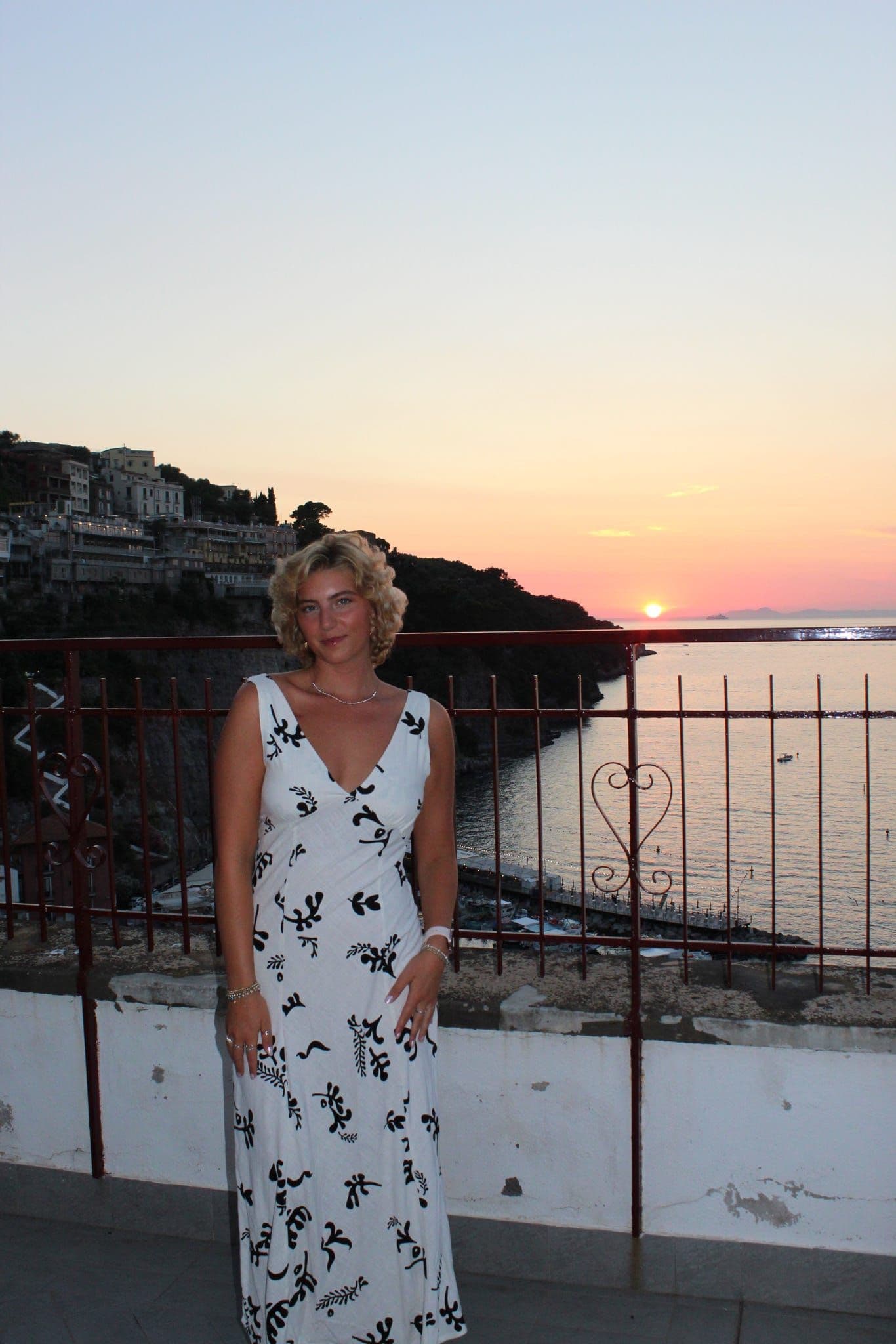
Alayna in July 2025 one year cancer free, for the first time in four years.
Q:
What’s your outlook now that you’re on the other side of treatment?
A:
Cancer is really never done. You're always dealing with scanxiety, you're nervous about something popping up, relapse. You're dealing with the side effects that never truly leave after treatment either. That's neuropathy. I have thyroid issues now. I have heart issues from radiation.
I did this treatment to give me the precious gift of time and to live my life, but there's drawbacks to that. There's things I'm always going to have to deal with and that will always remind me of my past. That's also why I've kind of taken this whole negative cancer journey and tried to turn it into something positive. When I do complain about being in menopause, I'm like everything happens for a reason. I tried to find my reason through my cancer journey. I made a foundation, became a nurse. I’m just trying to figure out who I can help. It’s a way of looking at cancer differently rather than shoving it down and putting it to the side: it’s embracing it and putting it out there to help others.
This interview has been edited for length and clarity.

